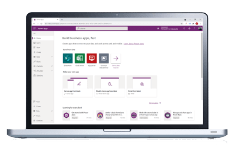Table of contents
Opening
Think of a project team like the Avengers—everyone has a specific role to play. The team wouldn't be the same without each integral person and would struggle to perform effectively if any parts were missing.
However, assembling a group of people for a common goal—and expecting project success—can feel intimidating! That's because top-notch project deliverables don't just happen. So much occurs in the life cycle of a project that it may seem like a wonder anything gets done at all!
There are steps you can take toward making a project plan seem more manageable. And it all starts with your project team.
That's why we've assembled a project team guide. You'll be able to understand the role each project team member plays, and how each role contributes to the greater goal of a completed, high-quality project.
The Project Manager
In some ways, the buck stops here. While there are likely levels of management higher than this, the project manager holds responsibility for each project team member and all assigned tasks, often using tools like Microsoft Project.

It's important to stop here and break down the organizational structure. A project manager is different from a team or department manager.
Imagine that you're part of the marketing department. Each day is relatively similar, as you make progress on different initiatives and report to senior management on your progress. None of these initiatives result in the completion of a specific project and aren't constrained to a specific time frame.
A project team, by contrast, is a group of individuals selected from the marketing department for a new site launch. Deliverables are the primary focus of the project manager here.
A project manager has one primary goal: to make sure the project goal is attained while staying on budget and within a time frame. They often serve as a liaison between project team members and senior management, and between their team and external clients/stakeholders.
The job of a manager is to maintain project scope, manage project deliverables, assign tasks to team members, and ensure successful completion. It's being an accountant, business analyst, project manager, and team cheerleader all in one.
The Project Team Member
Depending on the project scope, there could be multiple team members. The size of the team is often correlated directly to the number of deliverables and the size of the budget.
Of course, there is a lot of diversity here. Project team members could be writers, marketers, coders, developers, graphic designers, engineers, and more. There's no one-size-fits-all description when it comes to product team members.
Depending on the project, these team members could be full-time employees. They might be part-time, or they might even be external consultants.

Each team member is an integral part of pushing a project to completion, and they all rely on the project manager to help them keep the project going.
Their expertise is what the manager relies on to complete deliverables, but it's also invaluable when it comes to estimates. A manager doesn't know how long it will take to write a landing page, but a content marketer does.
This has a huge impact on project budget, duration, and client satisfaction.
The Sponsors
There are typically two types of sponsors in relation to a project team—the executive sponsor and the project sponsor. Usually, the executive sponsor is a member of senior management and ranks highly within the organization.
They make huge decisions that the project manager doesn't quite have the authority to do. For instance, they sign off on the additional budget, changing the project scope, and give the ultimate green light on project deliverables.
The project sponsor usually has a scaled-down version of these responsibilities. They ensure project resources are available, make sure the project itself is clearly communicated to the rest of the organization, and partner with the business analyst to make key decisions.
It's important to note that there are typically two types of project teams, which impact the sponsor types. There are internal project teams, which are responsible for specific time-bound projects within the organization.
Then, there are teams that take on projects for external clients. Since it's an external client that is signing off on goals, scope, and budget, there is a heavy customer service component to this type of project team.

While the structure of the team basically remains the same, the priorities can be very different. An internal team has been embedded in the company culture so long they know what's expected.
An external project team is responsible for absorbing a client's values and expectations very quickly and delivering on those goals. It's a different playing field, but both qualify as project teams.
The Business Analyst
There's nothing worse than soldiering through the trenches of a project and then realizing that it's not quite as valuable as you thought. Before anyone signs off on a project, it's important to identify how it will add value to the organization.
Will it bring in more customers? Or eliminate gaps in the marketing funnel? Or add new product offerings to the lineup?
Whatever it is, there has to be justification for this project. That's a big part of what the business analyst does, which prevents the project team from going off into the weeds and spending time/money on unjustified detours.
A business analyst usually defines the parameters of a project. This prevents scope creep, which avoids running over time and budget. They also partner with the team to draw a direct correlation between the project goals and a preexisting business problem that needs solving.
The business analyst also does a lot of documentation work. They document how the project will enhance the business, perform technical documentation, and make sure the project is in compliance with all safety regulations.
Creating a Project Team is Just the Beginning
If you need custom solutions based on your business goals, we're here to help! Our professionals can work with you or your project team to get the job done. Contact us today—we're happy to help!















